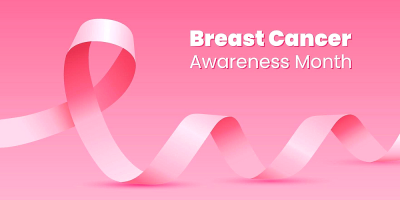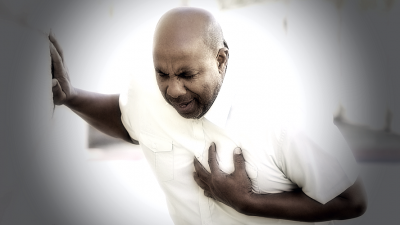
Obesity is in an increasing trend worldwide. Over 2 billion (39%) of adults were overweight, and 650 million (13%) were obese in 2019 globally.
According to the National Health and Morbidity Survey (NHMS) in 2019, 50.1% of our adult population were overweight (30.4%) or obese (19.7%). Our country’s rate of obesity is greater than the global obesity rate of 13.0 percent1.
Obesity is associated with an increased risk for non-communicable diseases (NCDs) such as hypertension, diabetes, heart disease, dyslipidemia and certain types of cancer.
NCDs are responsible for 71% of premature deaths and more than 70% of the disease burden in Malaysia1, 2.
The burden of disease (disability-adjusted life years, DALY) costs Malaysia about RM100 billion, or 7.35 percent of the national gross domestic product (GDP)3.
Cancer is one of the leading causes of premature death and illness in Malaysia. Breast cancer is the most common cancer among the Malaysian women, accounting to 34.6% of all cancers.
Over a person’s lifetime, about one out of twenty women is at risk4.
The cancer burden has risen due to several causes, including population growth and ageing. It is also linked to rapid economic and social development, notably cancers associated with obesity and lifestyle-related behavior.
Fat tissue increases estrogen levels and insulin resistance which predispose to higher risk for breast cancer.
A higher BMI is associated with an increase in the risk of breast cancer in women. For a 5-unit increase in BMI results in a 12% increase in breast cancer risk5.
Obese postmenopausal women have a 20% to 40% increased chance of having breast cancer than normal-weight women6.
Increasing exercise or physical activities helps reduce breast cancer risks7. As little as 75 to 150 minutes of brisk walking each week may be beneficial.
Maintain a healthy diet with less energy-dense/high-energy meals (such as deep-fried foods or fast food), reduced processed foods, red meats, chips and snacks. Avoid sugar- or calorie-dense beverages (such as sweetened juices) and alcohol.
Increase intake of high-fiber fruits, vegetables, legumes, cereals, nuts and fish are dietary measures to minimize the risks of breast cancer8.
Obesity is preventable. This needs action that starts from individuals to change preference and attitude toward obesity.
Get regular physical activity, eat a healthy diet, maintain a healthy weight, have adequate sleep daily, be free of tobacco or alcohol, and maintain a cheerful life can reduce obesity and breast cancer risks.
In conjunction with the World Obesity Day theme “Everybody needs to act”, let us all start acting by managing our body weight through the above measures to prevent obesity and breast cancer risks.
References:
- MOH. National Health and Morbidity Survey 2019 (NHMS 2019). Volume II-Non-communicable diseases, risk factors & other health problems Kuala Lumpur, Ministry of Health Malaysia: Institute for Public Health, Department PH; 2020 2020. Report No.
- Yusoff U. Burden of premature mortality in Malaysia. Int J Public Health Res. 2013;3(1):249-56.
- MOH. The Impact of Non-communicable Diseases and Their Risk Factors on Malaysia’s Gross Domestic Product. Putrajaya, Ministry of Health Malaysia: Institute for Public Health, 2020.
- Azizah A, Hashimah B, Nirmal K, Siti Zubaidah A, Puteri N. Malaysia National cancer registry report (MNCR). 2019.
- Renehan AG, Tyson M, Egger M, Heller RF, Zwahlen M. Body-mass index and incidence of cancer: a systematic review and meta-analysis of prospective observational studies. Lancet. 2008;371(9612):569-78. doi: 10.1016/s0140-6736(08)60269-x. PubMed PMID: 18280327.
- Munsell MF, Sprague BL, Berry DA, Chisholm G, Trentham-Dietz A. Body mass index and breast cancer risk according to postmenopausal estrogen-progestin use and hormone receptor status. Epidemiol Rev. 2014;36(1):114-36. doi: 10.1093/epirev/mxt010. PubMed PMID: 24375928; PubMed Central PMCID: PMCPMC3873844.
- Guo W, Fensom GK, Reeves GK, Key TJ. Physical activity and breast cancer risk: results from the UK Biobank prospective cohort. British Journal of Cancer. 2020;122(5):726-32. doi: 10.1038/s41416-019-0700-6.
- Molina-Montes E, Ubago-Guisado E, Petrova D, Amiano P, Chirlaque M-D, Agudo A, et al. The Role of Diet, Alcohol, BMI, and Physical Activity in Cancer Mortality: Summary Findings of the EPIC Study. Nutrients. 2021;13(12):4293. doi: 10.3390/nu13124293. PubMed PMID: doi:10.3390/nu13124293.
(Dr. Soh Yih Harng, DrPH candidate, and Professor Dr. Moy Foong Ming, Center for Epidemiology & Evidence Based Practice, Department of Social & Preventive Medicine, Faculty of Medicine, Universiti Malaya.)
ADVERTISEMENT
ADVERTISEMENT








































